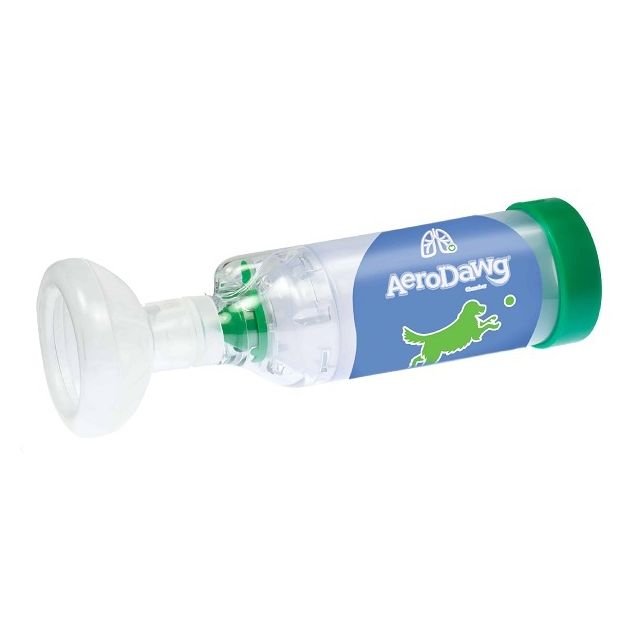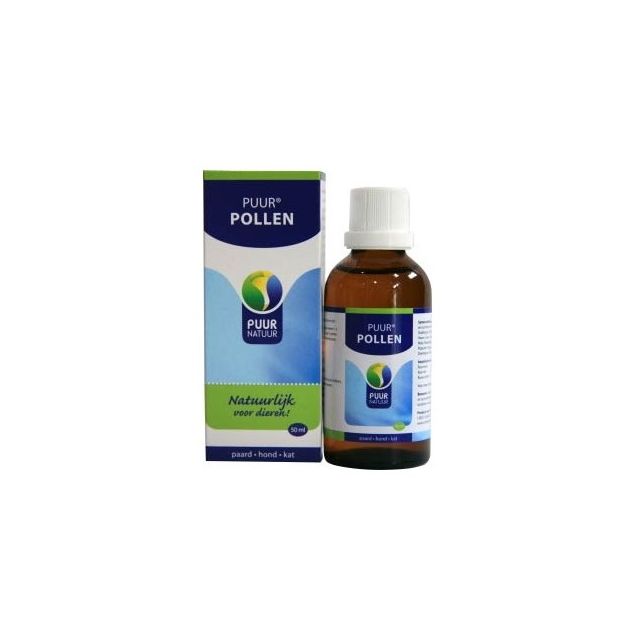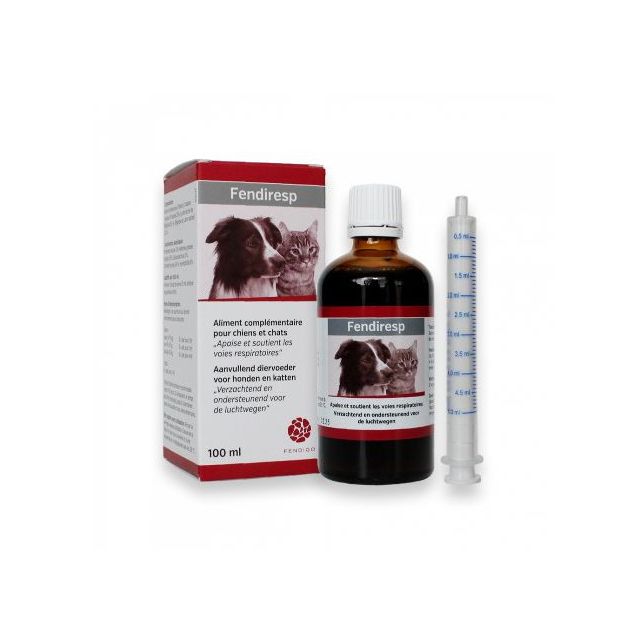The dog's respiratory tract
A common cold, like we humans often have, is rarely seen in dogs. Fortunately, because their sense of smell may be their most important sense! Coughing and shortness of breath are common in dogs. The causes for these vary from the highly contagious but relatively harmless kennel cough to asthma and pulmonary edema due to heart failure. Pharmacy4pets helps you keep your dog's airways in top condition.
The structure and function of the dog's respiratory system
The respiratory system is divided into the upper respiratory tract; nose, throat, and trachea, and the lower or deeper respiratory tract; bronchi and lungs.
The main function of the respiratory system, of course, is breathing, providing the body with oxygen. In addition, a dog's nose is its most important sense, and they can regulate their temperature by panting.
Symptoms of respiratory conditions
Sometimes, the symptoms can already indicate where the problem is in the respiratory system. For example, you can often tell where the problem is based on an additional sound: sniffing with a stuffy nose and snoring with a problem in the throat. The main symptoms of respiratory conditions are:
- Coughing.
- Shortness of breath.
- An additional sound during breathing.
- Altered breathing: faster, shallower, deeper, with more abdominal pressure.
- Red, pale, or bluish mucous membranes.
- Nasal discharge.
- Sneezing.
- Reverse sneezing: reverse sneezing, where the epiglottis momentarily goes awry, blocking the windpipe during breathing. Swallowing resolves the issue.
- Gagging/throat clearing.
- Lethargy.
- Reduced endurance.
- Discolored nasal mirror.
- Fainting.
If your dog shows symptoms of a respiratory condition, it is always advisable to have them examined by your veterinarian. Especially if your dog is short of breath, you should contact your veterinarian immediately.
Disorders of the upper respiratory tract in dogs
As mentioned earlier, a simple cold is not as common in dogs as it is in humans. Dogs can get 'colds,' but this is often caused by a different factor than a cold virus. A few upper respiratory tract problems will be briefly discussed.
Allergic Rhinitis
This is an inflammation of the nasal mucosa based on a hypersensitivity reaction. In humans, we call this hay fever. In dogs, it manifests as watery nasal discharge, sneezing, and inflamed eyes. The symptoms of upper respiratory tract issues are sometimes accompanied by itching, especially in dogs with atopy. The treatment of allergic rhinitis is usually symptomatic. Eye ointment with vitamin A protects the eyes before the walk; after the walk, particles and pollen can be flushed from the eyes with products like Bogacare Perfect Eye Cleaner, and sensitivity to pollen can be supported with PUUR pollen.
Kennel Cough
If your dog suddenly has a significant cough, especially during activity or while pulling on the leash, and is otherwise healthy, there is a high chance that he has kennel cough. Especially if he has been to a kennel about a week before or has played with a coughing dog. Kennel cough is an infectious inflammation of the trachea. In principle, a dog with kennel cough does not have a fever and is not sick. In rare cases, kennel cough can develop into pneumonia, but most dogs recover spontaneously from kennel cough.
Because kennel cough is highly contagious, it is better not to let your coughing dog be around other dogs. Rest is good for recovery, and walking with a chest harness is preferable to a collar due to the pressure on the trachea from the latter. Antibiotics are rarely necessary. Sometimes non-steroidal anti-inflammatory drugs are used, but often treatment is not needed. You can support your dog with Bronchofort, a soothing cough syrup based on homeopathy. Your dog can be vaccinated against kennel cough (also known as the 'nose vaccine' because the vaccination fluid is dripped into one nostril).
Brachycephalic Obstructive Syndrome (BOS/BOAS)
The Brachycephalic Obstructive Syndrome is a complex of disorders in the upper respiratory tract, including narrowed nostrils, an elongated soft palate, and a narrow trachea, which occurs in brachycephalic, or short-nosed breeds. These breeds, including Bulldogs, Pugs, and Cavalier King Charles Spaniels, have a relatively short upper jaw. There is simply 'no room' for all structures in their skull, often resulting in severe respiratory problems. Symptoms vary but usually include snoring during breathing, rattling, shortness of breath during exertion and excitement, and a high risk of overheating in hot weather. Dogs with BOAS sometimes need surgery: the nostrils are widened, and the soft palate is shortened. In the Netherlands, breeding dogs with a too short nose has been prohibited since 2019.
Disorders of the Lower Respiratory Tract
Dogs with issues in the lower respiratory tract often experience breathlessness and coughing. The most common disorders will be briefly discussed.
Asthma in Dogs
What we call asthma in humans is called chronic bronchitis in dogs. Bronchitis is an inflammation of the bronchi, the smaller airways in the lungs, and is associated with coughing. Chronic bronchitis is most commonly seen in small, older dogs that are often overweight. The diagnosis is based on the medical history, prolonged coughing, and physical examination, along with X-rays and sometimes bronchoscopy (using a tiny camera to examine the trachea and large bronchi).
The treatment of chronic bronchitis involves suppressing the cough, for example, by not smoking near the dog, preventing barking as much as possible, using a chest harness instead of a collar during walks, and sometimes using cough syrup or medication. Additionally, it is crucial for your dog to lose weight if they are overweight. Special dietary food like Specific Weight Reduction can be helpful. Anti-inflammatory drugs are often needed for life to control the inflammation. Almost all people with chronic bronchitis receive this medication via inhalation because it has fewer side effects. This can also be done in dogs with an AeroDawg inhalation system, but this requires training and commitment from the owner.
Pneumonia in Dogs
Pneumonia is a common condition in dogs. Viruses are often the cause, followed by bacterial infections that worsen the symptoms. Pneumonia can also be caused by a foreign object (such as a grass awn) or because the dog has swallowed something incorrectly. The most common cause of "inhaled pneumonia" is a paralyzed esophagus (megaesophagus). Other reasons may include epilepsy, botulism, myasthenia gravis, and swallowing problems, severe vomiting. In addition, congenital lung diseases, reduced immunity, diseases such as bronchitis, diabetes, and Cushing's disease, as well as medications such as prednisone or chemotherapy, can increase the risk of pneumonia.
Most dogs with pneumonia cough. We often see that dogs are lethargic, have a poor appetite, and reduced endurance. Sometimes, panting is the only complaint, but an animal can also be severely short of breath and have blue mucous membranes. About half of the dogs with pneumonia have a fever. The diagnosis is made through physical examination and X-rays. Sometimes a CT scan or bronchoscopy is needed. Prolonged antibiotic treatment is often necessary. If a foreign object is the cause, it must be removed.
Pulmonary Edema in Dogs
Pulmonary edema means there is fluid in the lungs. Because this fluid takes up the space for air, dogs with pulmonary edema often experience breathlessness and coughing. The most common cause of pulmonary edema is heart failure. The diagnosis is typically made through physical examination combined with an X-ray. Treatment usually involves a combination of heart medication and 'diuretics' or water-expelling medication.
Lungworm
Heart and lungworms are worms that nest in the small blood vessels of the lungs or in the trachea. Dogs become infected by ingesting larvae. Depending on the type of worm, this can occur through the feces of other dogs or by eating snails contaminated with larvae (or animals that have eaten those snails, such as frogs or mice).
Infected dogs often cough, can be breathless, have a poor appetite, and lose weight. The diagnosis can be confirmed by detecting larvae in the feces using the Baermann method.
The disease can be treated by deworming with Milbemax (treatment 4 times with one-week intervals) or Advocate (treatment to be repeated after 1 month).
Respiratory tract disorders can be unpleasant for your dog. Symptoms can range from a harmless runny nose to severe breathlessness. It is essential to contact your veterinarian if you suspect a respiratory tract condition so that the correct diagnosis can be made quickly, and your dog can breathe easy again.
If you have any questions about our products or your dog's respiratory health, please contact us.



